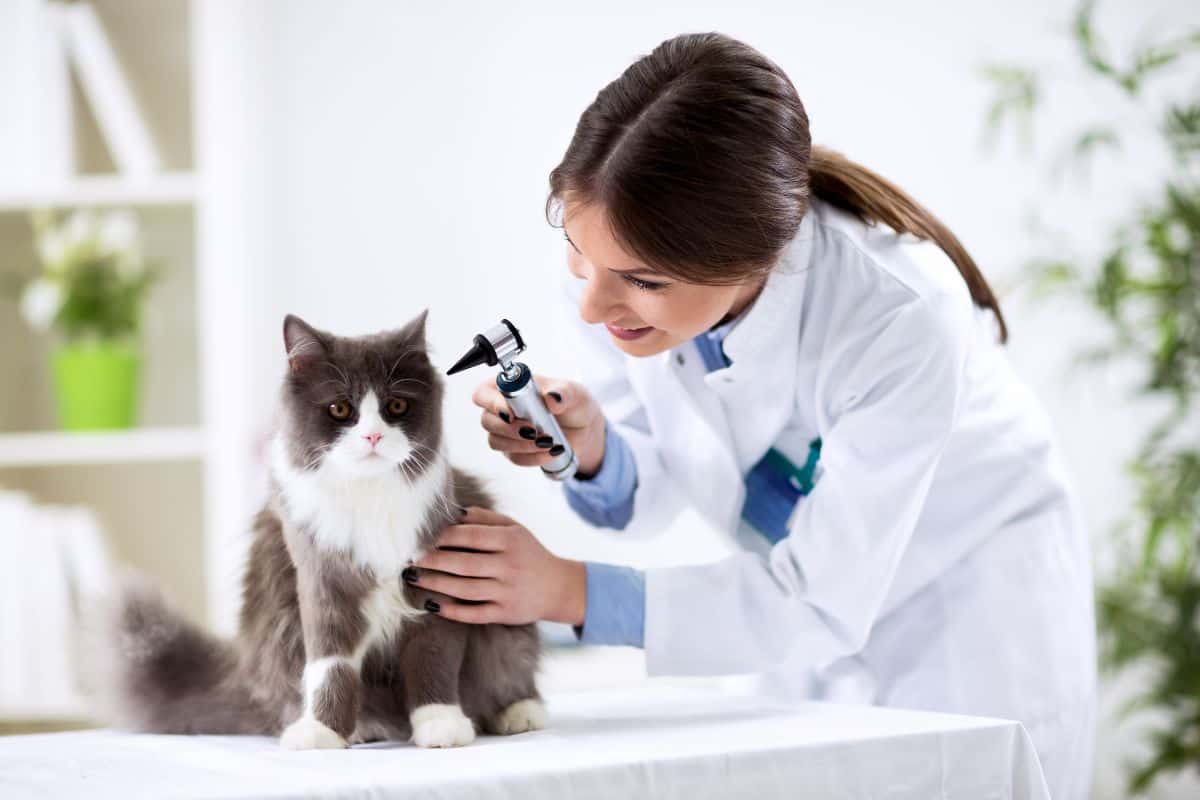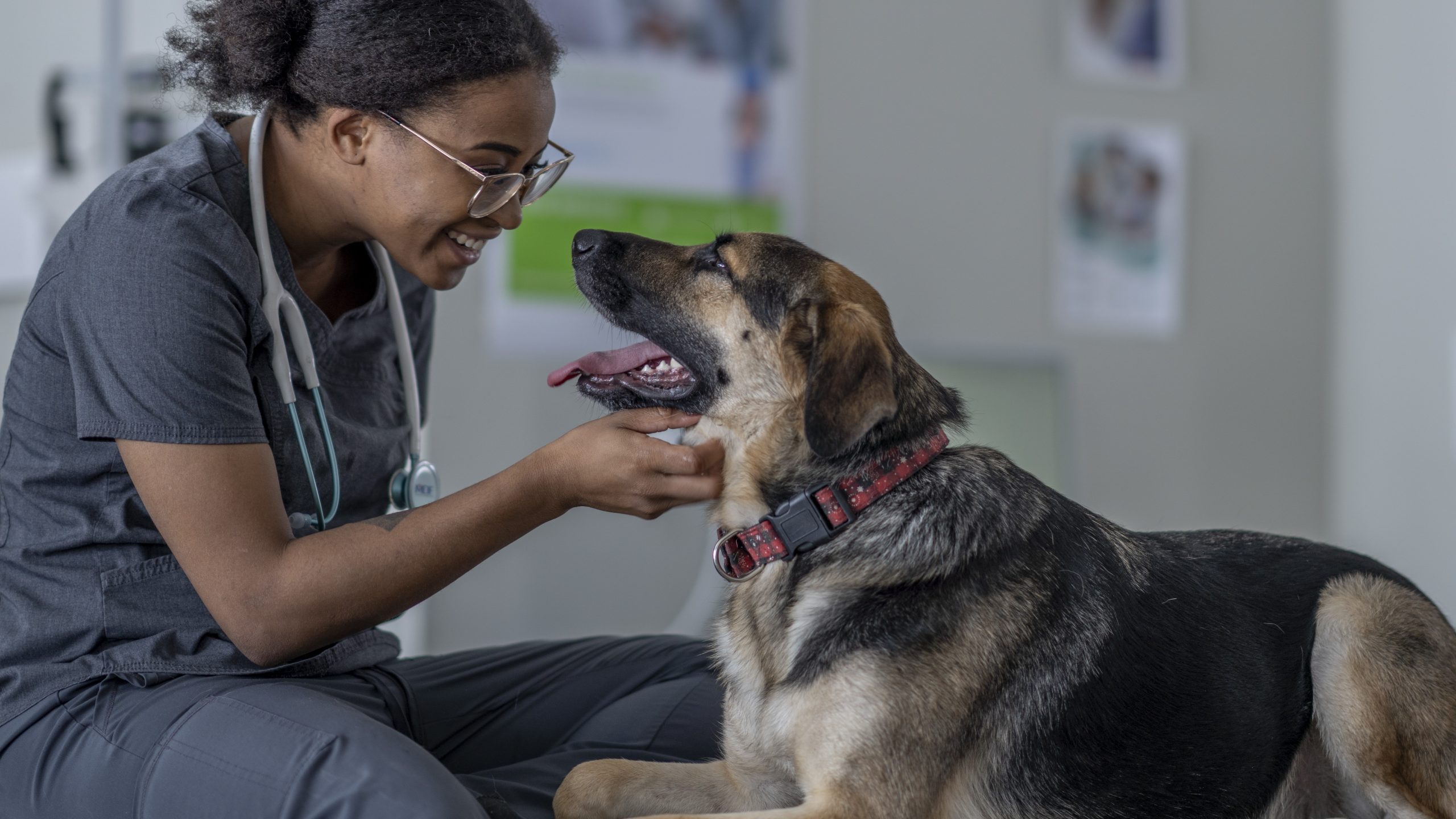Vaccination Guidelines From Your Trusted Vet
Vaccination standards offered by your trusted veterinarian play a vital function in securing your family pet's wellness and health. Core vaccines are essential for all pets, while non-core vaccinations can be customized to ecological direct exposures and particular way of lives. Recognizing the subtleties of inoculation routines, which start as very early as six to 8 weeks, is necessary for ideal protection. Additionally, dealing with typical mistaken beliefs bordering vaccines can better enhance animal owners' self-confidence in these preventative steps. As we discover these crucial elements, it ends up being significantly clear why regular assessments with your veterinarian are important for informed decision-making.

Relevance of Vaccinations
Vaccinations play a critical function in protecting pets versus a variety of avoidable illness. By promoting the immune system to recognize and combat specific pathogens, vaccinations significantly decrease the incidence of contagious conditions that can impact a pet dog's health and wellness and long life. Not just do inoculations secure private animals, however they also contribute to herd immunity, thereby decreasing the overall prevalence of diseases in the animal population.
Timely vaccinations aid to mitigate the spread of conditions such as rabies, parvovirus, and distemper, which can have extreme consequences for both animals and people. Additionally, inoculations are typically a demand for boarding centers, brushing solutions, and canine parks, making them crucial for those that wish to socialize their pet dogs.

Core Vaccines for Pets
While the details inoculation demands of family pets can differ based on individual factors, core vaccinations are generally recommended to shield against one of the most typical and serious diseases (Pet Vaccinations). Core vaccinations are those regarded essential for all animals, no matter their way of living or geographical location, as they protect against possibly fatal and extremely contagious ailments
For dogs, the core vaccinations consist of those for canine distemper, parvovirus, adenovirus (hepatitis), and rabies. Adenovirus can result in liver condition, while rabies is a zoonotic disease that positions a danger to both human beings and pet dogs.
In pet cats, core vaccinations incorporate feline panleukopenia, feline calicivirus, feline herpesvirus (rhinotracheitis), and rabies. Feline panleukopenia is an extremely infectious viral condition that affects the immune system and intestinal tracts. Calicivirus and herpesvirus are major contributors to top respiratory infections in pet cats, while rabies remains an important worry for public wellness.
Speak with your vet to ensure your family pets get their core inoculations on time.
Non-Core Vaccines Explained
Non-core vaccines are tailored to address specific risks connected with a family pet's exposure, way of life, and setting to particular illness. Unlike core injections, which are generally suggested for all animals, non-core injections are thought about based on private conditions. These vaccinations are particularly vital for animals that might come across distinct microorganisms due to their geographical place, traveling routines, or activities.
Instances of non-core injections consist of those for Bordetella bronchiseptica, which is linked to kennel coughing, and Lyme illness, triggered by ticks. Pets that frequently engage with other pets, such as those in boarding centers, pet parks, or grooming atmospheres, might gain from Bordetella vaccination. If you live in a location where Lyme illness is prevalent, immunizing against this condition can be a prudent choice for outdoor-loving canines.
Various other non-core injections might include those for leptospirosis, canine influenza, and feline leukemia, relying on the specific danger variables present. It is important to have read an extensive conversation with your vet he said about your family pet's way of living and the potential requirement for these vaccinations, ensuring a tailored inoculation strategy that finest safeguards your furry friend.
Inoculation Set Up Introduction

As animals grow, it is essential to stick to the advised booster inoculations. Vet Enterprise. For adult pets, core vaccines are normally provided each to three years, depending upon the specific vaccine and local guidelines. Non-core vaccinations might be advised based on way of life aspects and local condition frequency, demanding a customized approach
Regular vet exams are vital for upgrading inoculation timetables. Your veterinarian can provide assistance on one of the most appropriate booster shots for your animal, factoring in age, health and wellness standing, and ecological dangers. By remaining aggressive and educated, animal proprietors can guarantee their fuzzy companions obtain efficient and timely inoculations, thereby protecting their health and health throughout their lives.
Usual Misconceptions Regarding Vaccines
Misconceptions about pet vaccinations can result in confusion and unwillingness among family pet proprietors concerning the immunization process. One common misconception is that vaccines are unneeded for interior family pets. While it holds true that interior pet dogs encounter reduced risks, they are not totally immune to illness, as virus can be introduced via various ways, including human apparel and other pet dogs.
One more mistaken belief is that vaccines can create the illness they aim to stop. In truth, most vaccinations have inactivated or their explanation attenuated pathogens, which can not create condition in healthy pets. Some family pet proprietors also believe that their family pets should not be vaccinated if they are already healthy; nevertheless, vaccinations are a proactive step that aids avoid the start of illness.
Furthermore, numerous pet owners fear that vaccinations will result in lasting health difficulties. While negative effects can happen, they are short-lived and usually mild. The advantages of inoculation-- safeguarding animals from possibly life-threatening illness-- far outweigh the risks. Understanding these usual myths is vital for liable pet possession and guaranteeing the health and wellness of your fuzzy companions. Always consult your vet for exact information tailored to your family pet's certain demands.
Final Thought
In recap, adherence to vaccination guidelines is essential for guaranteeing the health and longevity of animals. Resolving typical misconceptions surrounding inoculations additionally reinforces the relevance of educated decision-making in family pet care.
Not only do inoculations shield specific animals, however they additionally contribute to herd immunity, thereby reducing the total prevalence of conditions in the animal populace.
False impressions regarding pet dog vaccinations can lead to complication and hesitation among pet owners pertaining to the immunization process. While it's true that interior pets deal with reduced risks, they are not totally immune to conditions, as virus can be introduced through numerous means, including human apparel and other family pets.
Some animal proprietors likewise believe that their pets must not be immunized if they are currently healthy and balanced; however, vaccinations are an aggressive measure that aids avoid the beginning of disease.
The benefits of inoculation-- protecting pet dogs from potentially lethal diseases-- much surpass the threats.